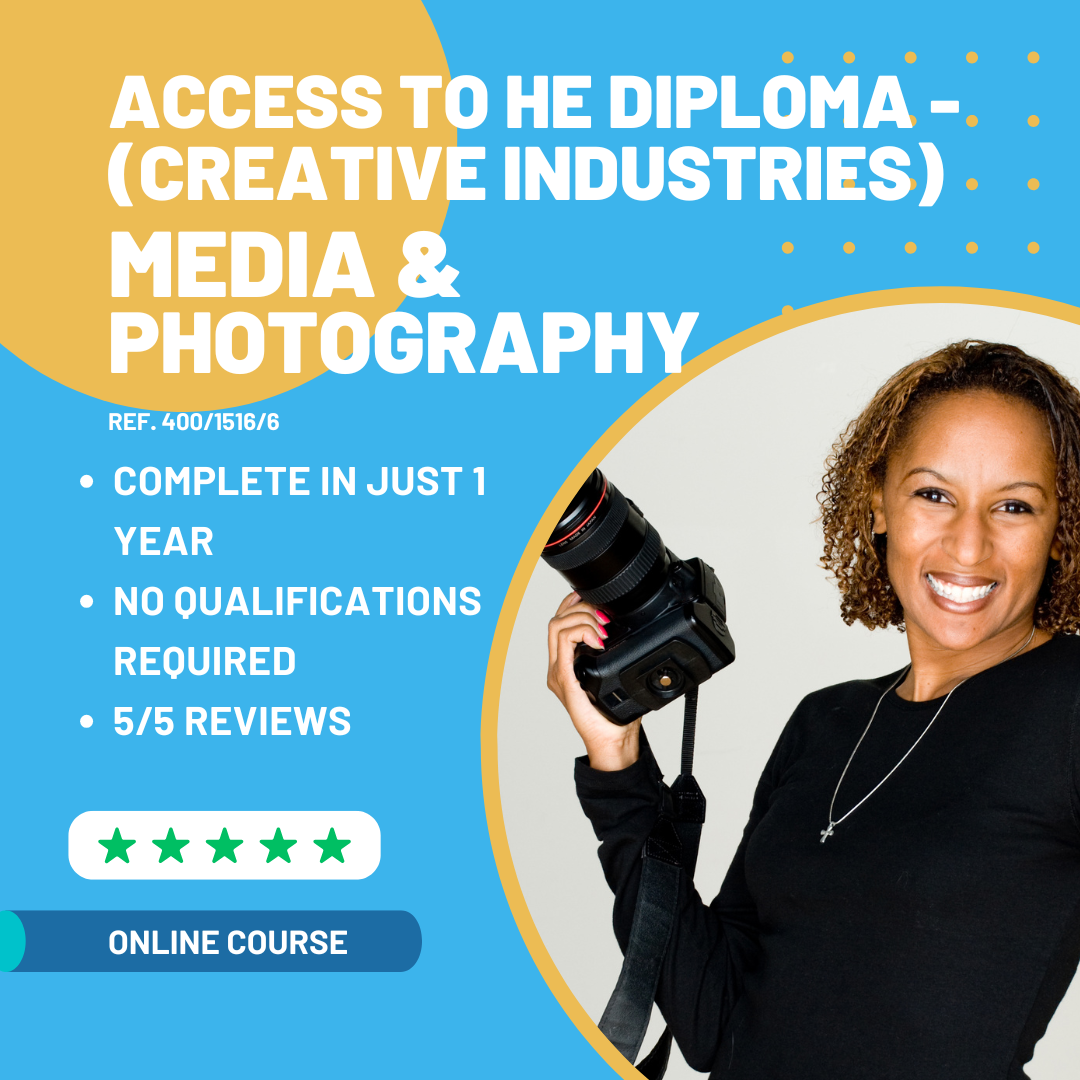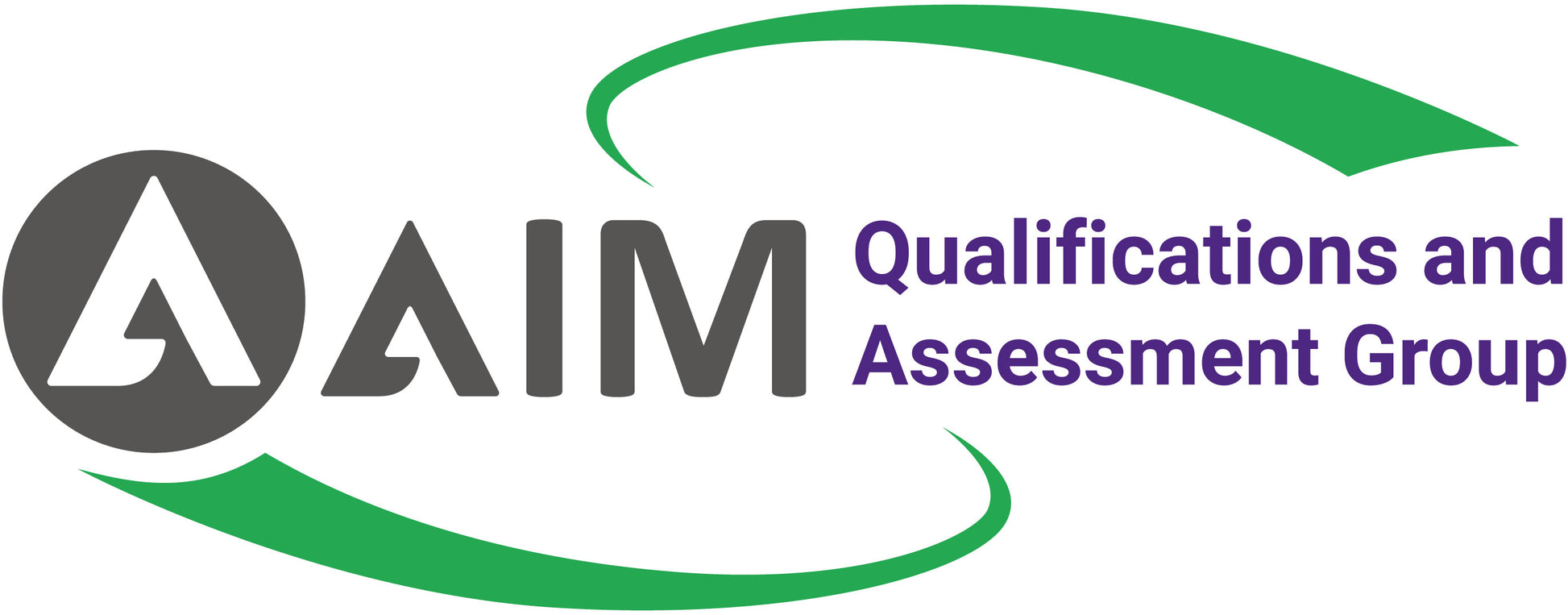AccessCoursesOnline
Access to HE Diploma (Creative Industries - PHOTOGRAPHY AND MEDIA)
Access to HE Diploma (Creative Industries - PHOTOGRAPHY AND MEDIA)
Couldn't load pickup availability
Course Outline
Course Outline
The Access to HE Diploma (Creative Industries – Media and Photography) is a full Level 3 qualification awarded by AIM Qualifications and Assessment Group and accepted by universities across the UK.
The course brings together:
Media units in film, TV, client briefs, and digital creativity.
Photography and art/design units including single camera techniques, editing, photography, and graphic design.
Study skills and wellbeing units to prepare you for higher education and support your creative journey.
This balance ensures you are ready to progress into a wide range of creative arts and media degrees.
Modules
Modules
Academic Study Techniques (6 credits)
Develop essential skills such as essay writing, research, referencing, and time management to succeed in higher education.Progressing to Higher Education (3 credits)
Prepare for university applications and admissions by refining your personal statement, building interview confidence, and exploring what higher education will demand of you.Develop Critical Thinking (3 credits)
Learn how to analyse creative works, question assumptions, and reflect critically on media and design. This builds the intellectual framework needed for academic and creative study.Mental Health and Wellbeing (3 credits)
Understand how to manage your own mental health and wellbeing in demanding academic and creative environments. This unit helps you balance creativity with self-care.Computers in Art, Design and the Media (3 credits)
Explore the role of computers and digital technologies in creative production. Learn how software and hardware are applied in media, design, and creative arts.Writing for Film and TV (6 credits)
Develop scriptwriting skills for screen-based storytelling. Learn about structure, dialogue, and character development, and practise writing scripts for short films, TV, or digital platforms.Working to a Media Client Brief (3 credits)
Gain professional experience of working to a real or simulated client brief. This unit develops communication, planning, and problem-solving skills essential for creative careers.Introduction to Design (3 credits)
Explore design principles such as composition, layout, and typography, and learn how they are applied across creative media projects.Imagery for the Creative and Digital Industry (3 credits)
Learn how imagery is created, adapted, and used across the creative and digital industries. Develop your ability to communicate visually in different contexts.Photography Skills (3 credits)
Develop technical photography skills, including camera operation, lighting, and composition. Learn how to create images with impact and purpose.Graphic Design (3 credits)
Learn the fundamentals of graphic design, including layout, typography, and branding. This unit introduces creative design tools and applications.Colour Theory and Application (3 credits)
Explore how colour works in design and media. Learn about colour psychology, harmony, contrast, and practical applications in creative projects.Single Camera Techniques (9 credits)
Gain hands-on experience of single-camera film and photography techniques. Learn how to plan, shoot, and edit using professional methods.Editing Skills and Adjustments (6 credits)
Develop post-production skills for both photography and video. Learn about editing software, adjustments, sequencing, and how editing shapes meaning.Introduction to Digital Imaging Techniques (3 credits)
Learn the basics of digital imaging software, exploring tools and techniques for editing, retouching, and manipulating images.
Enrolment Requirements
Enrolment Requirements
There are no formal entry requirements. However, learners are normally expected to be working at:
Level 2 in English
Level 2 in Mathematics
At Access Courses Online, we provide advice and support before enrolment to ensure you are fully prepared to succeed.
Assessments
Assessments
Assessment is coursework-based rather than exam-based. Tasks may include:
Portfolios of creative work
Essays and written assignments
Practical photography and media projects
Presentations
Research projects
To achieve the diploma you must complete 60 credits:
45 graded credits at Level 3 (Pass, Merit, or Distinction).
15 ungraded credits at Level 2 or 3.
All work is internally marked and externally moderated by AIM to ensure fairness and quality.
Qualification
Qualification
On successful completion you will be awarded the QAA-recognised Access to Higher Education Diploma (Creative Industries), Level 3 (OFQUAL Ref: 400/1516/6).
This diploma is awarded by AIM Qualifications and Assessment Group, regulated by Ofqual, the QAA, and Qualifications Wales.
It is widely accepted by UK universities as an entry qualification for creative industries and media degrees.
Careers
Careers
This diploma prepares you for degrees such as:
Media Studies
Film and Television Production
Photography
Graphic Design
Digital Media
Creative Arts
With a degree, career options include:
Photographer – working in commercial, editorial, or creative photography.
Film/TV Producer or Director – creating visual stories for screen.
Media Content Creator – developing content for digital platforms.
Graphic Designer – producing visual communications and branding.
Advertising or Marketing Creative – working in agencies to design campaigns.
Post-Production Specialist – editing and finishing film or photography projects.
The creative industries are one of the UK’s fastest-growing sectors, offering versatile and inspiring careers. This diploma is your starting point to turn creative passion into a professional future.
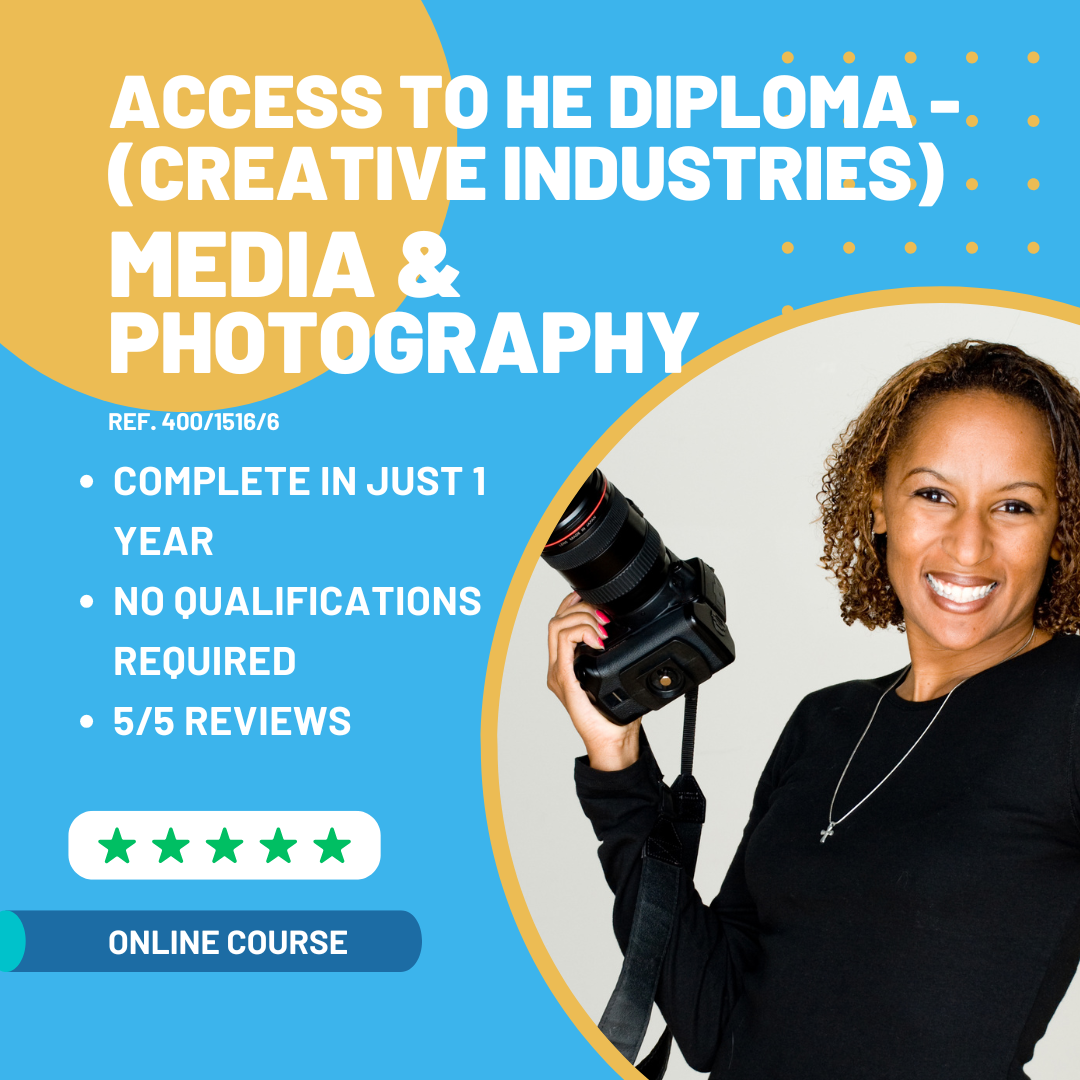
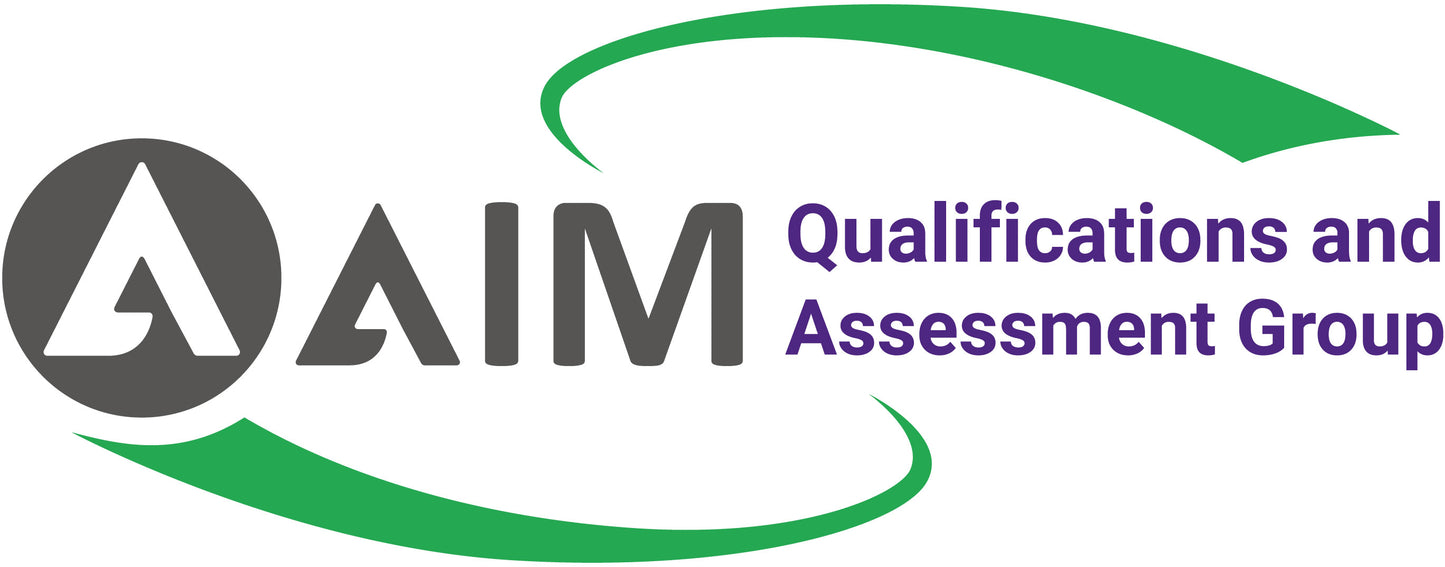

Our Guarantees
-

Affordable Learning
We offer flexible payment plans to make learning more accessible and affordable. Spread the cost of your course over manageable monthly payments, so you can focus on achieving your goals without financial stress.
-
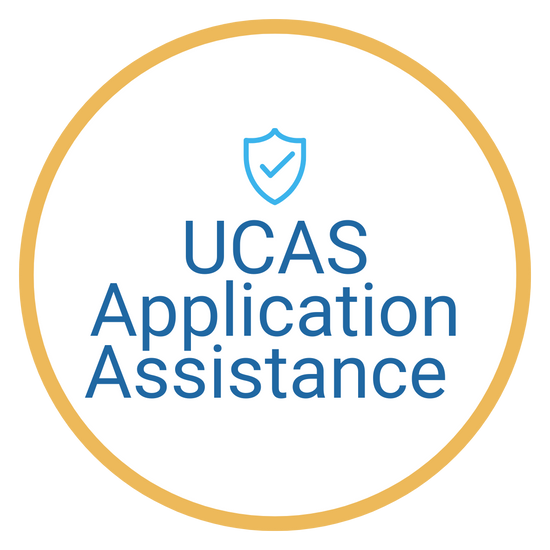
Application Support
We provide UCAS application support to help you navigate the university admissions process with confidence. From personal statement guidance to application tips, we’re here to support your journey to higher education.
-

Exam Free Learning
Our courses are completely exam free. Instead of exams, you'll complete assignments and coursework designed to develop your knowledge and skills in a supportive and flexible learning environment.
FAQ Art and Design
My Portfolio
Will I be supported to develop a portfolio?
Yes, throughout the course you will be asked to complete different projects that will help you to get started and improve your practice. These projects will help you to develop your own portfolio which is a vital element when applying to university or trying to find a job as a freelance artist/designer. You are not expected to have any prior experience and our tutors will help you throughout the different steps.
What does an Art Portfolio look like working online?
Work is photographed and shared on documents. Powerpoints can give scope for good presentation, but we also offer online website portfolios. That way students can build their online portfolio and can be easily shared in the future.
Our specialists are from a range of fields so can best advise depending on the type of art you are producing.
University
Can I get directly into university after completing the course?
Yes, many universities accept Level 3 Access courses to get direclty onto their degree programs.
Some universities may require you to join their Foundation course before getting enrolled into the actual degree so it is worth checking their website and see what the specific requirements.
Our tutors will help you during the application process through UCAS.
When are university interviews for art subjects?
Students are usually expected to apply December/January time through UCAS and most interviews take place from February to April. It is possible to get accepted into a course at a later stage (e.g., June) but it may involve going through clearing which means that potentially one may not get accepted in the desired course as places might have been filled already. Our tutors will provide advice and support during the application process
What is the process for art students to apply for university?
From 2024, you won't be expected to write a personal statement but you will be expected to have a portfolio and be ready for interview. A portfolio is a selection of your best work and should demonstrate your knowledge, creativity, and the potential to experiment and be open to different techniques and processes. This should be curated carefully and our tutors can help you with this. Porfolios can be requested to be submitted digitally or brought in physical form to the interview.
What do they look for in university art subject interviews?
The interview is conducted by a member of the art department and is focused on your motivation to complete the course, your interest in the specific subject, and some questions about your work (portfolio) and aspirations.
Will you help me prepare for my art interview?
Yes, our tutors will help you to get you ready for that stage.
When should I decide which area I want to study at university?
Once you have completed the initial compulsory modules you will be expected to select an area that you would like to focus on. This will be an important step as this will help you to specialise and narrow down your portfolio in an area you may want to study at university. Our tutors can help you when making a decision based on your interests and aspirations. It is not a decision you need to make before you join the course.
Learning in Practice
Will I learn about different art and design areas before choosing a specialism?
Yes, the course is designed so that you can experiment with graphics, photography, fine art, before committing to a particular area. This will give you the opportunity to try different disciplines and decide which one you like best.
How will I be assessed in the course?
You will be asked to produce work that may involve drawing, painting, using graphics, or taking photographs. In addition, you will be expected to do a bit of research on different topics (e.g., colour theory) so that you can explain it and then apply it to your own practice. There are no exams and the evaluation is 100% coursework.
Do I need to purchase specific materials/equipment?
You won't be asked to purchase particular equipment to complete the course but you will be expected to use some materials for some of the projects (e.g., paint, brushes, pencils, textiles,...). Depending on the project the particular materials can be negotiated with the tutors.
Will I be able to complete the course in one year?
You will be able to do that if you follow the study plan and meet the deadlines.
What if I fall behind?
Much of the course is working one on one with the tutor. The deadlines, tutorials etc. will be arranged and, if needed, adjusted according to your schedule. So even if you fall behind, we will come up with a ‘rescue’ plan.
Can I complete the course while working?
Yes, all our students work part-time or full-time. Our main goal is to support working students and help them in their goal of getting the qualifications they need to be able to go to university
How will I attend?
A live lesson will take place every week online. This lesson will be recorded. If you can’t attend our live lessons, you will be able to watch the recordings. To allow for flexible study, attendance is not monitored in terms of live lesson attendance. Learners are expected to participate through submission of assignments and regular communication. Discussion of progress will determine that learners are following their agreed study plan and, therefore, the pace of study.
Tutors
Who are my Tutors?
Alberto is a highly qualified and experienced online art tutor. With an MA in Fine Art, many published works and art exhibitions on his CV (including Vogue Italia!), Alberto has extensive experience and knowledge in the area of Photography and Fine Art.
Kieran is a Fine Artist who trained in Florence and can provide the highest level of coaching in painting/drawing skill and technique. His portfolio includes many awards and appearing on Sky Arts as a contestant! Kieran has taught online for a number of years.
Martine is a Fashion and Textiles tutor. With an impressive portfolio in Education, Martine comes from a creative background and has written content for many awarding bodies and been an assessor for over 10 years. Building fashion portfolios and giving 1:1 teaching for a range of creative courses, Martine will support those going into Fashion and Textile Degree programmes.
I have little to no experience in art academically, although I am passionate about it and want to learn more. Can you help me from such little exposure to such learning?
Absolutely! This is what this course is designed for. You do not need ANY prior qualifications in art and deserve the opportunity to now fulfil your potential in your creative field.

